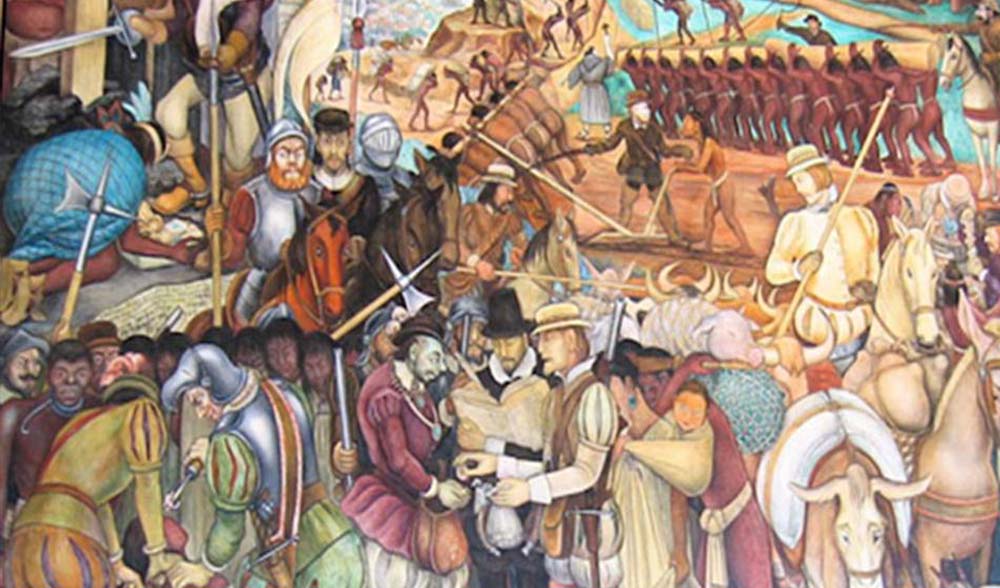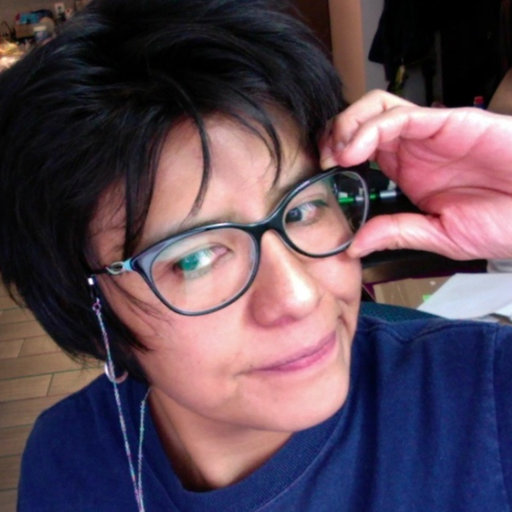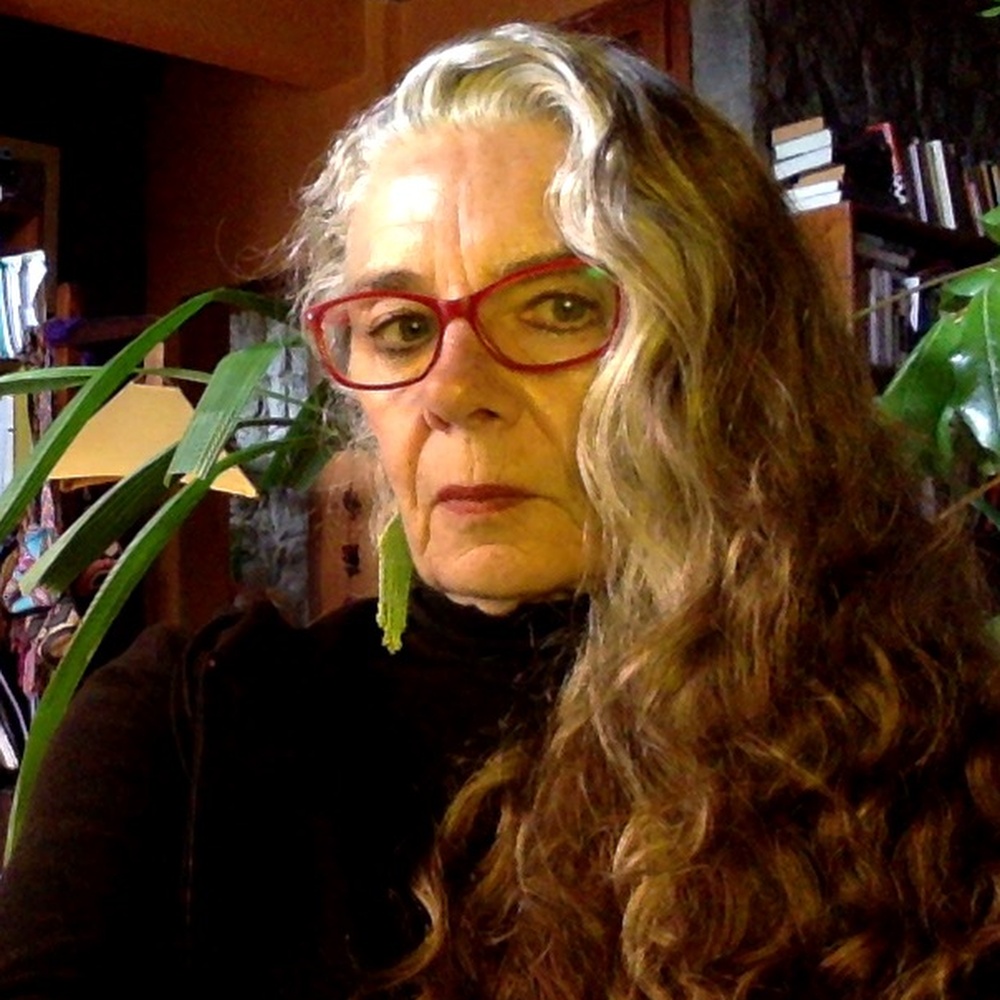‘Higher education and knowledge in Latin America past, present and future’ series – webinar 4: Epistemic injustice, decolonisation and the potentials of intercultural education
- CHAIR: Alma Maldonado, Departamento de Investigaciones Educativas (DIE)-CINVESTAV, Mexico
- SPEAKER: Catherine Walsh, Universidad Andina Simón Bolívar, Ecuador
- DISCUSSANT: Regina Cortina, Columbia University, US
Event Materials
This event is now archived and we are pleased to provide the following event media and assets, along with the original event overview.

Diego Rivera mural from the Palacio Nacional in Mexico City, titled ‘Explotación de México por conquistadores españoles’ (Exploitation of Mexico by Spanish conquistadors).
“The university is of the people, not the government,” was the leading cry of student protests in Ecuador a decade ago against the education policies of the then “progressive” state. “What people?” some asked, when higher education remains a primarily white-whitened enterprise with a clearly male ethos. With what and whose knowledges? And knowledges for what? Knowledge allied with the interests of capital and the project and logic of global coloniality? Or, as many in the region argue, knowledge of and for life?
While such questions are pertinent today in many regions of the globe, they are particularly so in Latin America where coloniality took form 530 years ago and continues its configurations, most especially in these times of pandemics in which COVID, systemic racism, gendered violence, and increased impoverishment, most especially for Black and Indigenous urban and rural communities, intertwine.
This talk takes root in this reality, asking not so much about the large-scale transformation of higher education in Latin America – a practically impossible task – but more crucially about the decolonial fissures and cracks present and emergent. The cracks, as I will argue here, are not the solution but the possibility; spaces where epistemic interculturalizations, decolonizations, and pluriversalizations can and do occur.
About the CGHE webinar series on higher education and knowledge in Latin America past, present and future
Latin American countries and their universities share a common historical legacy although each national systems in the region exhibits its own particularities and richness. The first universities in Latin America were established half a century after Columbus landed in the Americas in 1492. Since then, thousands of universities have opened, evolved or disappeared in response to national developments and needs, and global trends.
A key feature that characterises Latin American universities is their autonomy. During colonial times, universities progressively gained autonomy from the Catholic church. After independence the universities were intent on supporting nation building and focused on professional training but during the first three decades of the nineteenth century, the Cordoba movement in Argentina had a significant role in reasserting university autonomy across the region. It promoted both university self-governance and wider participation. Students pursued the modernisation of universities within larger agendas of democracy, academic freedom and social responsibility.
Between the 1970s and the 1990s Latin American Universities and academics were repressed and punished by military dictatorships. They also experienced massification and recurring financial crises, trends that continued after the 1990s, and a growing emphasis on evaluation and accreditation.
Latin American universities, like many universities around the world, are now shaped by internationalisation, privatisation and marketisation trends. They still need to defend and advance their autonomy. They also need to improve their research and knowledge production while helping to advance social changes and a more equal society. Many Latin American universities have been working on agendas of widening participation and inclusivity. They have also been wrestling with their colonial past, which has continuing implications for the review and transformation of their local, national and global roles. The role of intercultural universities in decolonising the curriculum has been an important development.
In this CGHE webinar series the speakers and participant audiences will examine key challenges for Latin American higher education. While reviewing the past and investigating the present, the webinars highlight crucial aspects of higher education in the region that provide insights into the future. The first webinar on 30 June discusses political and economic aspects of higher education reforms in Latin America. The second webinar on 5 July considers the impact of university rankings and the concept of ‘world class universities’ on the institutions and in academic careers, and the implications for regional university autonomy and development. The third webinar on 7 July dissects internationalisation and student mobility in and beyond the region. The final webinar in the series on 12 July tackles the big underlying issue of the past, present and future, the decolonisation of universities and knowledge in Latin America and the role of intercultural education as a strategy of decolonisation.
The series is organised by Martin Benavides Abanto from Peru, Carolina Guzmán-Valenzuela of Chile and CGHE’s Simon Marginson, with the help of CGHE Director of Communications Trevor Treharne and colleagues throughout the region.
You need to register individually for each webinar in the series. You can register for the other webinars in the series here.



